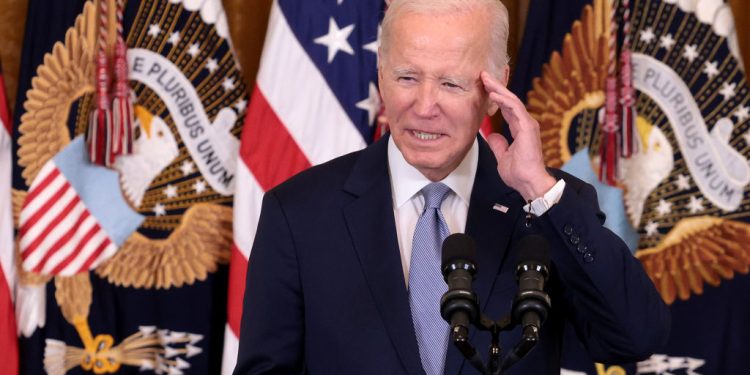A factory in Arizona that President Joe Biden once hailed as a success story of his economic agenda now faces significant issues with a labor union, the South China Morning Post reported Monday.
Biden and his supporters described the 2022 groundbreaking of the Taiwan Semiconductor Manufacturing Company (TSMC) facility near Phoenix, Arizona, as a solid indicator that his economic agenda is delivering strong results, boosting American manufacturing and minimizing the exposure of key supply chains to Chinese aggression, according to the South China Morning Post. However, about nine months later, the facility is marred by a dispute between TSMC and local labor unions, complicating that narrative while pitting key aspects of the Biden agenda against each other.
“The reason why business should be hiring union folks, if you don’t mind my saying, is simple: They’re the best in the world,” Biden said on Dec. 6 at the groundbreaking. “American manufacturing is back.”
John Kirby: “…We do not support Taiwan independence”
Looks like the Biden White House is caving to China pic.twitter.com/KOadfrMrb2
— Daily Caller (@DailyCaller) August 1, 2022
However, Biden’s vision for a unionized workforce producing important computer chips in the facility has not yet come to life: TSMC has pushed back production and called for U.S. officials to fast-track visas for high-skilled Taiwanese workers to work the plant, according to the South China Morning Post. TSMC has hired mostly non-unionized workers through contractors, but the company is reportedly under political pressure to strike a deal with organized labor as Biden seeks its support in the 2024 presidential race.
Unions have historically been stalwart supporters of Democratic politicians and candidates, according to Daniel Schlozman, a political science professor at Johns Hopkins University.
Initially slated for completion in 2024, the facility now will not be operational until 2025 at the earliest, according to the South China Morning Post. TSMC has invested at least $40 billion in the state.
About 25% of the workers on the job site have been union workers to date., and they only recently have been able to initiate discussions with the company to reach a labor deal, according to the South China Morning Post. About 25% of the workers on the job site have been union workers to date.
In August, a local union filed a petition with Arizona state legislators after TSMC disclosed its plan to have 500 workers come from Taiwan to finish the project, a plan which the union said was “a slap in the face,” according to the South China Morning Post.
Biden supported the 2021 CHIPS and Science Act to incentivize the repatriation of computer chip manufacturing and supply chains, much of which resides in Taiwan, according to NBC News. The bill, which became law with bipartisan support, was intended to secure the supply chain for the sophisticated hardware as tensions mount with the Chinese Communist Party (CCP), particularly over the status of Taiwan.
A scenario in which the CCP opts for a wholesale invasion of Taiwan could potentially decimate the advanced manufacturing capacity of the U.S., as well as its ability to produce key military equipment, according to Sky News. The chips that TSMC produces are also critical to the Chinese economy, according to Reuters.
Neither the White House nor TSMC responded immediately to requests for comment.
All content created by the Daily Caller News Foundation, an independent and nonpartisan newswire service, is available without charge to any legitimate news publisher that can provide a large audience. All republished articles must include our logo, our reporter’s byline and their DCNF affiliation. For any questions about our guidelines or partnering with us, please contact [email protected].
All content created by the Daily Caller News Foundation, an independent and nonpartisan newswire service, is available without charge to any legitimate news publisher that can provide a large audience. All republished articles must include our logo, our reporter’s byline and their DCNF affiliation. For any questions about our guidelines or partnering with us, please contact [email protected].


























 Continue with Google
Continue with Google